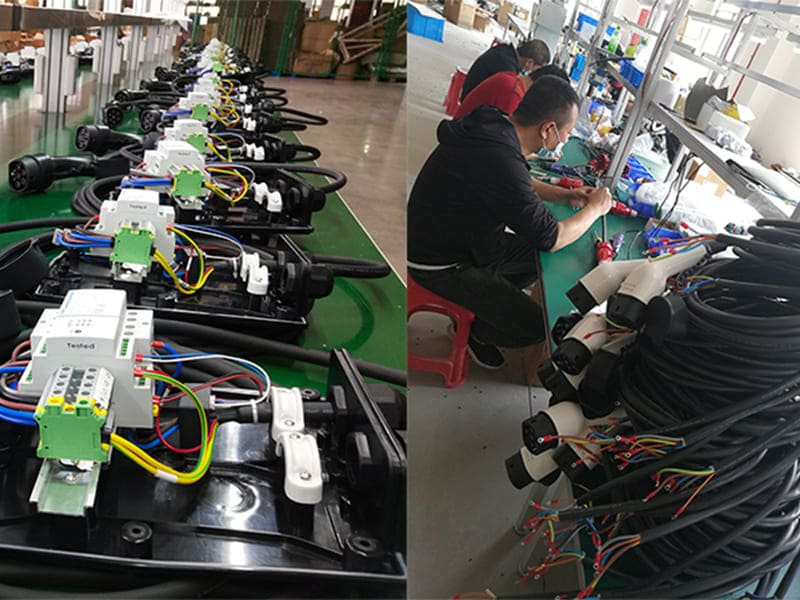Portable EV charger is a form of Home EV charger, and the main differences are their portability, charging speed, installation method, and applicable scenarios.
1. Portability
A Portable EV charger, as the name suggests, is a charging device that can be carried in a car. It is usually lightweight, making it easy for users to charge their EVs in different locations, especially when there is no fixed EV charger. The Home EV charger, on the other hand, needs to be installed in a fixed location, usually at the user’s home or place of work. Although the Home EV charger can not be moved at will, it is more stable and safe.
2. Charging speed
Home EV charger generally offer faster charging speeds. Since Home EV charger have higher power, they can fully charge an electric vehicle in a shorter amount of time. Portable EV charger, on the other hand, have a relatively low power and charge slower, but they are enough to recharge the vehicle in an emergency.

3. Installation
Home EV charger require professionals to install them, usually plugging into the home’s electrical system. This process may require additional costs and time. The Portable Electric Vehicle charger, on the other hand, does not require installation, just connect the charging device to the charging port of the electric vehicle and start charging.
4. Applicable Scenario
The Home EV charger is suitable for those who have a fixed parking space, and they can charge their electric vehicles at night or during the day to meet their daily travel needs. And for those who often park in different locations or need to charge temporarily, the Portable Electric Vehicle charger is more practical. For example, a taxi driver or someone who travels a lot may be more inclined to use a Portable EV charger.
Portable EV charger and Home EV charger have their own advantages and disadvantages, and users should choose the right charging equipment according to their own needs and actual conditions.The difference between DC and AC for commercial EV charging stations is here.
